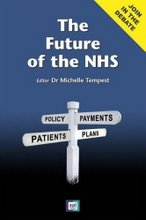
Sometimes life can feel like a bit of a roller coaster ride. There is a wealth of ways to describe the same situation which in turn feedback to the brain about how the body has interpreted a particular situation. For example, if two people sit next to each other on a roller coaster ride, one may return saying “that was exhilarating”, yet the other may report “that was petrifying”. These phrases give insight into how the body has interpreted its own physiological response. The two people on the roller coaster ride both went around the same track and both experienced the same acceleration down the big dipper; yet one interpreted their physiological response as exhilarating and the other as petrifying. These words are their conscious mind describing their inner emotional state. Words can be important in determining future action and may impact upon the action of others. For instance, it is unlikely that the petrified passenger would wish to go on the ride again, nor that friends would suggest that they come back another day to go on the same fairground ride. This example illustrates the impact of words and how verbal descriptions can transform actions.





















